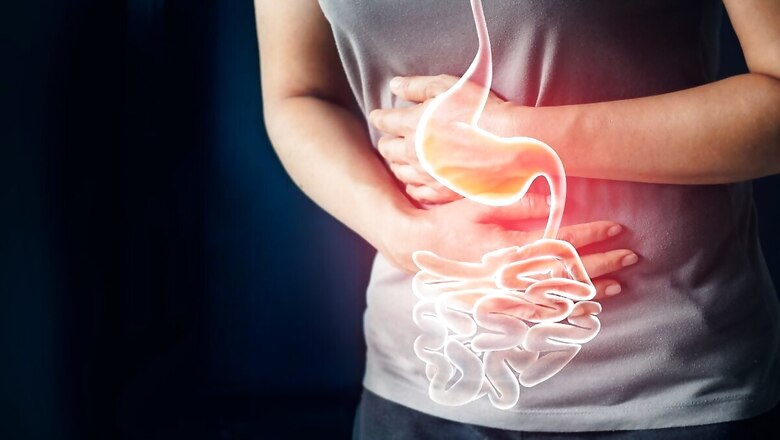
views
Bloating is a condition characterised by a feeling of fullness, swelling or distension in the abdomen. It can create a sensation of increased pressure or discomfort in the stomach area, making the abdomen appear larger than usual. As per statistics by Cleveland Clinic, between 10 to 25 per cent of otherwise healthy people complain of occasional bloating, while 75 per cent of women experience it during their menstrual cycle.
There are several reasons why you might feel bloated. Certain foods can cause your stomach to swell because they produce gas or are hard for your body to digest. However, bloating isn’t just a digestive problem because it sometimes involves more than just what’s going on in your stomach. While it can be caused by eating too much or too quickly, or by certain foods that produce gas, there are other factors at play.
Let us explore some of the causes of bloating:
- Stress and anxiety can make your stomach feel bloated. When you’re stressed, your digestive system can get out of sync, which might cause bloating. Managing stress through relaxation techniques, exercise, and a balanced lifestyle can help alleviate these symptoms.
- Hormonal changes, like those during your menstrual cycle, can lead to a feeling of bloating even if you haven’t eaten anything unusual. During the menstrual cycle, these hormonal shifts can lead to increased water retention, making the abdomen feel swollen. Additionally, hormonal changes can impact gut motility, contributing to feelings of fullness and bloating.
- Fluid retention is another factor. Sometimes your body holds onto extra water, which can make you feel bloated and puffed up. This can be related to things like high salt intake or hormonal changes.
- Gut health issues can cause bloating when the balance of gut bacteria is disrupted or when there is an overgrowth of bacteria in the small intestine. Imbalances in gut microbiota can lead to increased fermentation of undigested food, producing excess gas and causing bloating. Conditions such as small intestinal bacterial overgrowth (SIBO) can also exacerbate these symptoms by causing excessive gas production and digestive discomfort.
- Bloating can also be caused by eating certain hard-to-digest foods, or result from interolances. For instance, foods like beans, broccoli, or carbonated drinks can lead to bloating. Digestive issues, such as constipation or food intolerances (such as lactose intolerance), can make bloating worse.
- Consuming large quantities of food stretches the stomach, which can lead to discomfort and a feeling of fullness. When you eat too much at once, your digestive system has to work harder to process the excess food, which can result in increased gas production and slower digestion. This can make your abdomen feel swollen and bloated.
If bloating is persistent, severe, or accompanied by other symptoms such as unexplained weight loss, significant changes in bowel habits, or pain, it is crucial to consult a healthcare professional.




















Comments
0 comment